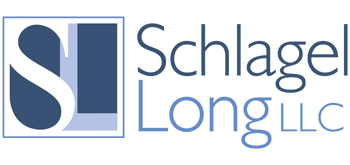Does Anyone Know Where Your Money Is?
Importance of Sharing Financial Information with Loved Ones
Situation: Brother in a Coma with No Access to Financial Information
A woman’s brother is in a coma. No one in the family, even the man’s wife, knows anything about his savings, investments, debts, or any financial matters. The family doesn’t know who his financial advisor is, if he has a will or how much money is available to pay bills, which are piling up rapidly. When they did locate bank accounts, the family had to work with three different banks to get access to the money. At least there was a Power of Attorney in place, so bills could be paid. However, what else did he own?
The family’s story, as related in the article “Someone Needs to Know Where Your Money Is” from Kiplinger, is not unusual. An estate plan with preparations for incapacity as well as death, shared with his wife or a family member, would have prevented many of these problems. What can you do if faced with this same scenario?
Prevention through Estate Planning
Finding the most recent tax return will yield a lot of information. This document will have the name of the person who prepared the return, if the person used a CPA. The tax return will also document income and possibly list some assets. Information like earned interest, dividends, pension income and withdrawals from retirement accounts will be on the tax return. If you know the name of the person’s employer, call the human resources department, since they may be aware of a life insurance benefit or a 401(k) account.
The person in this example was admitted to the hospital and their health deteriorated so rapidly that there was no time to make any proper arrangements. We never know what the future will bring. Having an estate plan and gathering information on finances and assets—and sharing this information with loved ones—should be done by everyone.
Essential Documents in Case of Incapacity
Here are the documents most people need in case of incapacity:
Will, Financial Power of Attorney, and Trust Documents, if any exist
Bank, Investment, and Social Security statements
Information for all online assets, including financial assets, websites, business accounts, and cryptocurrency
List of all Retirement Accounts, annuities, and life insurance policies
Cost basis of all investment in taxable brokerage accounts or stocks
A list of any assets of value, including real estate and automobiles
A list of debts, and
Most recent tax returns.
Keeping Information Secure
Schedule B on a tax return can reveal some surprises for family members. If there are no paper records or log-in information to financial websites, ask the tax preparer for a copy of the 1099 form for each asset. Once the list is complete, put together the information, along with all insurance company information and the tax return, into a large envelope to be reviewed once a year.
Some estate planning attorneys keep original wills for clients, but not all do. Contact your estate planning attorney to find out what would happen if you became incapacitated and be sure to have the necessary documents created or updated, including a will, financial power of attorney, health care power of attorney and any trust documents. A copy of your Social Security card, birth and marriage certificates, and estate planning documents can go into a big envelope marked “Legal Documents” and placed in a secure location, also to be reviewed annually.
Conclusion
Tell your executor and trusted family members where these documents are, so they can be accessed when needed. They will be able to act on your behalf in the event of incapacity and you will have spared them unnecessary stress and expenses.
Reference: Kiplinger (Nov. 1, 2021) “Someone Needs to Know Where Your Money Is”
About Attorney Benjamin Long
Benjamin E. Long is the founding attorney of Schlagel Long, LLC, an estate planning and probate law firm based in Olathe, Kansas. With over a decade of legal experience, Ben is dedicated to helping individuals and families protect what matters most—loved ones, legacies, and values. His practice focuses on creating personalized estate plans that avoid conflict, maintain privacy, and keep families out of court.
Benjamin understands that estate planning isn’t just about passing on financial assets. It’s about preserving your story, your values, and the human elements you’ve spent a lifetime building. He works closely with clients to ensure their estate plans reflect their unique goals, from wills and trusts to guardianship planning and probate administration.
A skilled litigator as well as a compassionate planner, Ben also handles probate and trust litigation, fiduciary disputes, and guardianship matters—offering clients peace of mind during challenging times. He holds a J.D. from Washburn University School of Law, where he earned a Certificate in Advocacy and was inducted into the Order of the Barristers. He also holds a B.S. in Biology from Kansas State University.
Benjamin is licensed to practice in Kansas and the U.S. District Court for the District of Kansas. He is an active member of the American Bar Association, Kansas Bar Association, and Johnson County Bar Association.
Recognized as a Super Lawyers Rising Star and a recipient of the Martindale-Hubbell Client Distinction Award, Ben brings a trusted voice and deep experience to every client relationship. He also teaches future attorneys as an adjunct professor at Washburn Law and leads the Kansas State University Mock Trial Team.
Benjamin lives in Olathe with his wife, Dr. Andra Long, and their two daughters.

Related Posts
Gift Your House To Your Children
How Does a Will Work After Death?
Social Security Payments After a Person Dies
What Happens If You Don’t Name Beneficiaries?
Two Words Could Undo Your Entire Estate Plan
Should You Add Someone to Your Bank Account?
Avoid Estate Planning Mistakes
Different Trusts for Different Estate Planning Purposes
What Is a Qualified Personal Residence Trust
Inherited IRAs Require Careful Handling
